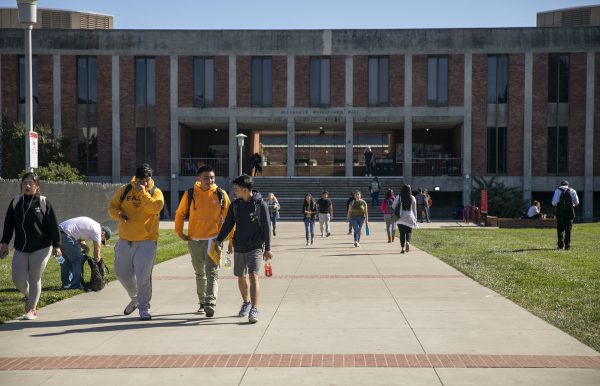Campus to take new approach to student discipline
August 7, 2014
The department of Judicial Affairs was renamed Student Conduct, Rights and Responsibilities in an effort to make the department less punitive and more proactive since the reestablishment of Student Affairs in fall 2013.
The new office’s key approaches will be centered on student development, conflict resolution and restorative justice; a process to mediate conflict between the victim and the offender and reach a conclusion outside of the justice system.
Rebekah Rhodes, director of Student Conduct, Rights and Responsibilities, was hired this summer to head the department and has been actively involved in the new student orientations and will also be holding a workshop for faculty before the start of fall quarter.
“We know students will make mistakes,” Rhodes said, “and we want them to learn from those mistakes.”
Rhodes has been working with the orientation teams to put on presentations about student conduct for incoming students to let them know what behavior is expected of everyone in the community.
“If you get that out early, and they understand it, their behavior changes itself, they self-regulate and I think that’s important,” said Sheryl Boykins, university police chief.
In general, there isn’t much crime on campus beyond personal theft and disturbances. The major concerns around student conduct have to do mostly with underage drinking, marijuana use and academic dishonesty, which Boykins said are usually treated as administrative procedures.
“We don’t need a lot of enforcement, we just need guidance,” Boykins said.
Rhodes said she will be focusing on more workshops, mediation and conflict coaching, and she will also work closely with housing to make sure small conflicts don’t get out of hand.
“The idea is to have a focused training so we cover the full spectrum of not just plagiarism, but ethics in research, integrity in day-to-day dealings with faculty members and each other,” said Stan Hebert, associate vice president of Student Affairs. “Helping students understand that if they take care of the little things on a daily basis, the bigger things may be easier to handle.”
Hebert said when Student Affairs was reestablished a team of faculty, administrators and students discussed the most ideal approaches and methods for Judicial Affairs, while still following the guidelines outlined by the California Education Code and the CSU Chancellor’s Office Executive Orders.
“The process is clear,” Hebert said. “It’s something all CSUs have to do.”
But Angela Wilson said upon examining what other CSUs were doing, they found many were called Student Conduct, Rights and Responsibilities and focused on student development more than punishment after an offense.
“Young adults may make a mistake here and there and we want them to learn from those mistakes,” Wilson said, “and ultimately continue to be successful here at East Bay.”
















